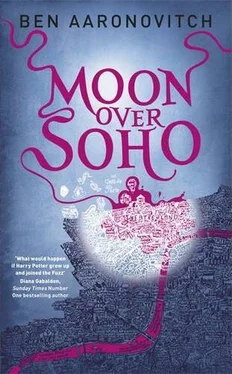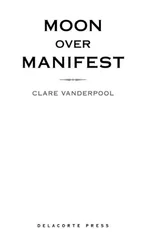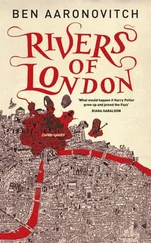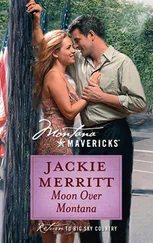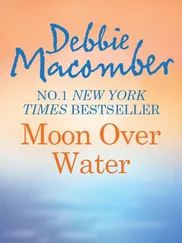Back when my old man was on the scene the Spice of Life wasn’t a happening place for jazz. It was, according to him, strictly for geezers in roll-necked sweaters and goatees reading poetry and listening to folk music. Bob Dylan played there a couple of times in the 1960s and so did Mick Jagger. But none of that meant anything to my dad, who always said that rock and roll was all right for those who needed help following a beat.
Up until that lunchtime I’d never so much as been inside the Spice of Life. Before I was a copper it wasn’t the kind of pub I drank in, and after I was a copper it wasn’t the kind of pub I arrested people in.
I’d timed my visit to avoid the lunchtime rush, which meant the crowds milling around the circus were mainly tourists and the inside of the pub was pleasantly cool, dim, and empty, with just a whiff of cleaning products fighting with years of spilled beer. I wanted to get a feel for the place and I decided the most natural way to do that was to stand at the bar and have a beer, but because I was on duty I kept it to a half. Unlike a lot of London pubs the Spice of Life had managed to hang on to its brass-and-polished-wood interior without slipping into kitsch. I stood at the bar to drink my half and as I took my first sip I flashed on horse sweat and the sound of hammers ringing on an anvil, shouting and laughter, a distant woman’s scream and the smell of tobacco — pretty standard for a Central London pub.
The sons of Mūsā ibn Shākir were bright and bold and if they hadn’t been Muslims would have probably gone on to be the patron saints of techno-geeks. They’re famous for their ninth-century Baghdad bestseller, a compendium of ingenious mechanical devices that they imaginatively titled Kitab al-Hiyal — The Book of Ingenious Devices. In it they describe what is possibly the first practical device for measuring differential pressure, and that’s where the problem really starts. In 1593 Galileo Galilei took time off from astronomy and promulgating heresy to invent a thermoscope for measuring heat. In 1833 Carl Friedrich Gauss invented a device to measure the strength of a magnetic field, and in 1908 Hans Geiger made a detector for ionizing radiation. At this very moment astronomers are detecting planets around distant stars by measuring how much their orbits wobble and the clever people at CERN are smashing particles together in the hope that Doctor Who will turn up and tell them to stop. The story of how we measure the physical universe is the history of science itself.
And what do Nightingale and I have to measure vestigia with? Sod all, and it’s not even as if we know what we’re trying to measure in the first place. No wonder the heirs of Isaac Newton kept magic safely under their periwigs. I had jokingly developed my own scale for vestigia based on the amount of noise Toby made when he interacted with any residual magic. I called it a yap, one yap being enough vestigia to be apparent even when I wasn’t looking for it.
The yap would be an SI unit, of course, and thus the standard background ambience of a Central London pub was 0.2 of a yap (0.2Y) or 200 milliyaps (200mY). Having established that to my satisfaction I finished the half-pint and headed downstairs to the basement, where they kept the jazz.
A set of creaky stairs led down to the Backstage Bar, a roughly octagonal room, low-ceilinged and punctuated with stout cream-colored columns that had to be load bearing because they certainly didn’t add to the sight lines. As I stood in the doorway and tried to get a feel for any magical ambience, I realized that my own childhood was about to interfere with my investigation.
In 1986 Courtney Pine released Journey to the Urge Within and suddenly jazz was back in fashion and with it came my dad’s third and last brush with fame and fortune. I never went to gigs, but during the school holidays he used to take me with him on visits to clubs and recording studios. Some things linger even from before conscious memory — old beer, tobacco smoke, the sound a trumpet makes when its player is just getting it warmed up. You could have two hundred kiloyaps of vestigia in that basement and I wouldn’t have been able to separate them from my own memories.
I should have brought Toby. He would have been more use. I stepped over to the stage in the hope that proximity might help.
My dad always said that a trumpet player likes to aim his weapon at the audience, but a sax man likes to cut a good profile and that he always has a favorite side. It being an article of faith with my dad that you don’t even pick up a reed instrument unless you’re vain about the shape your face makes when you’re blowing down it. I stood on the stage and adopted some classic sax-player stances, and as I did I began to feel something, stage front and right, a little tingle and the melody line of “Body and Soul” played far away, piercing and bittersweet.
“Got you,” I said.
Since all I had to go on was the magical echo of one particular jazz tune, I figured it was time to find out precisely which of several hundred cover versions of “Body and Soul” it was. What I needed was a jazz expert so obsessed that the subject had consumed him to the point where he neglected his health, his marriage, and his own children.
It was time to go see my old man.
MUCH AS I love the Jag, it’s too conspicuous for everyday police work. So that day I was driving a battered silver ex–Metropolitan Police Ford Asbo that, despite my best efforts, smelled vaguely of old stakeouts and wet dog. I had it stashed up Romilly Street with my magic police business talisman in the window to ward off traffic wardens. I’d taken the Asbo to a friend of mine who’d tuned up its Volvo engine and gotten me a satisfactory bit of zip, which came in handy dodging the bendy buses on Tottenham Court Road as I drove north for Kentish Town.
Every Londoner has their manor — a collection of bits of the city where they feel comfortable. Where you live, or went to college, where you work or your sports club, that particular bit of the West End where you go drinking or, if you’re the police, the patrol area around your nick. If you’re a native-born Londoner — and contrary to what you’ve heard, we are the majority — then the strongest bit of your manor is where you grew up. There’s a particular kind of safety that comes from being on the streets where you went to school, had your first snog, or drink, or threw up your first chicken vindaloo. I grew up in Kentish Town, which as an area would count as a leafy suburb if it was leafier and more suburban. And if it had fewer council estates. One such is the Peckwater Estate, my ancestral seat, which had been built just as architects were coming to terms with the idea that proles might enjoy indoor plumbing and the occasional bath but before they realized that said proles might like to have more than one child per family. Perhaps they thought three bedrooms would only encourage breeding among the working class.
One advantage it did have was a courtyard that had been turned over to parking. There I found a clear bay between a Toyota Aygo and a battered secondhand Mercedes with a criminally mismatched side panel. I pulled in, got out, beeped the lock behind me, and walked away secure in the knowledge that because they knew me around here they weren’t going to jack my car. That’s what being on your manor is all about. Although, to be honest, I suspect the local roughnecks were much more scared of my mum than they were of me. The worst I could do was arrest them.
Strangely, I heard music when I opened the front door to my parents’ flat — “The Way You Look Tonight,” played solo on a keyboard, coming from the main bedroom. My mum was lying on the good sofa in the living room. Her eyes were closed and she was still in her work clothes — jeans, gray sweatshirt, paisley headscarf. I was shocked to see that the stereo was silent and even the TV was switched off. The TV in my parents’ house is never switched off — not even for funerals. Especially not for funerals.
Читать дальше
